By Tijah Bolton-Akpan
From 7th to 11th of May, 2018, Nigeria joined the rest of the world to mark the global Open Government Partnership (OGP) Week. They were five days of reflection on how far Nigeria has come on the open government journey and plenty of inspiration for the distance ahead. I summarized my current thoughts on the OGP into these five ideas, one for each day of the OGP week:
- With more states joining the OGP, we are set to witness a new and increasingly robust wave of government-civil society partnerships across the country. The multi-stakeholder partnership model of the OGP guarantees process equality between the government and citizens’ representatives in the OGP and this remains one of its unique and most lauded features. The insistence on equal number of representatives from both sectors on the Steering Committee, Co-Chairs from both sectors and co-creation and ownership of ideas and action plans imposes a burden on governments and civil society actors to rethink how they engage. In co-creation lies a big potential for change but also a big risk if not well managed. This is very important at the state level where, more often than not, the might of the governor is law, and civil society is perceived more or less as a dispensable irritant or at best a negligible afterthought in government-driven processes.
The impact of the OGP on government-civil society relations at the subnational level will, without a doubt, become an important research area for students of governance in the near future. Already, success stories are emerging from Kaduna, Kano, Anambra, Enugu and Ebonyi (Nigerian states that have signed on to the OGP) on how old assumptions, animosities and contempt are giving way to new relationship modes across the divide. There is no gainsaying that this will have a transformative impact on demand-side organizing generally and, more specifically, on the capacity of citizens to hold governments to account at the subnational level. Unfortunately, the Niger Delta, in spite of its peculiar narrative, has been missing so far on the queue of states that have indicated interest in the OGP.
- Nigeria’s OGP leadership faces the huge task of marketing existing state-level reform programmes as well as the “elite club” carrot as an incentive for state governors and other subnational leaders, especially as the 2019 elections approach. It is not enough to dangle the prospect of having more subnational commitments in the country’s next NAP cycle as an incentive for states to come on board. Whether we agree or not, very few leaders at the state level are driven by such high or nationalist values. What really ticks them are fiscal incentives (based on the power to collect more money) and political prestige (based on the power of belonging). For a time, the Federal Ministry of Finance wielded the big stick of the Fiscal Sustainability Plan (FSP) at states but it seems the initial enthusiasm has waned and states are now accessing federal bailouts and budget support without meeting the FSP conditions. I understand that the World Bank is tying states’ qualification to access certain new Bank financing on OGP-compliance. Conditionalities can be tricky but they are very welcome in this context.
I have discussed the need to join OGP Nigeria’s subnational programme with very highly placed officials in as few states and repeatedly I got either a direct or thinly veiled message that anything OGP had to wait until after the 2019 elections. Note that by that time Nigeria would be entering its second National Action Plan (NAP) cycle. What this means is that the push to localize OGP may take a beating in the struggle between policy imperatives and political expediency at the state level. This may also have implications for the inclusion of subnational commitments in the next NAP. I think a carrot and stick approach will do the trick.
- Legislative openness and role of parliaments in the OGP. The legislature is an important domain for open government reforms but it does seem that Nigeria’s National Assembly (NASS) and State Assemblies have yet to embrace the OGP in a manner sufficient for gaining needed traction. I have followed the OGP process in Nigeria and I think the legislators at all levels are still spectators. Beyond the need to be involved as active participants, legislators also have a duty to open up their own work while making laws and performing oversight to support the opening of other facets of government. Citizens need access to information and opportunities to influence laws and other deliberations before the legislature. Technology avails legislatures of new tools for opening up their data and processes to citizen scrutiny and engagement. Thinking about just how long it has taken NASS to even begin to respond to the #OpenNASS campaign, there is much justification to begin considering legislative openness commitments for the next NAP.
I also note the game changing potential of some of Nigeria’s OGP commitments that may remain at the level of mere potential without the right legal framework in place and the backing of the legislature. One of them is the uncovering of anonymous ownership of companies playing in the extractive sectors through the establishment of a public registry of beneficial owners of such companies. This depends on the review of the Companies and Allied Matters Act (CAMA) 1990 as amended. Another big win will come from asset recovery, success on which will depend a lot on the enactment of the long awaited Proceeds of Crime Act (POCA). There are yet others, including the pending Whistle Blower Act. These proposed legal reforms underscore a crucial role for the National Assembly in the OGP that so far, has not been emphasized.
- It is important to overtly link Nigeria’s OGP implementation to the SDGs
Nigeria cannot succeed in the OGP if it is implemented in isolation of broader national development strategies. The emerging culture of openness must be internalized in the implementation of the Sustainable Development Goals (SDGs) while specific SDGs also need also be mainstreamed in the next NAP.
Goal 16 of the SDGs is central to the OGP as it commits countries to reduce corruption; develop effective, transparent and accountable institutions; ensure responsive, inclusive, participatory, and representative decision making; and ensure public access to information and the protection of fundamental freedoms. But specific action on the other goals through OGP commitments will be needed in the days ahead. The way things are, asset recovery is poised to become one of the major tools for moving Nigeria towards achieving a number of the SDGs, mainly Goals 1, 2, 3, 4 and 8 which are very relevant to Nigeria’s Social Investment Programme. That is, if government’s decision to commit the recently repatriated $232.5 billion Abacha loot to the Programme is effectively implemented. As this is a key policy plank of the current administration, it makes a lot of sense for government to open up on social investment spending, implementation and outcomes. This would go a long way to restore citizen confidence in the troubled scheme while ensuring that the poorest and most vulnerable are reached with development goods and services in line with the philosophy of the global goals.
The next line of action would be to work with the Office of the Special Adviser to the President on the SDGs and the National Social Investments Programmes (NSIP) to craft fresh commitments for Nigeria’s next NAP cycle that are at once social investment and SDGs compliant. In a similar vein, sectors such as agriculture, environment, road infrastructure, power and water could give thought to the value that comes with more openness through the OGP.
- The OGP is no silver bullet but it’s worth the bet. The OGP cannot be a cure-all for Nigeria’s governance woes. But will it bring progress? Certainly! It will be necessary to keep pushing forward with reform efforts that are outside of Nigeria’s current NAP commitments, while finding ways to incorporate them into future NAPs. That way, we can avoid the trap of sacrificing the whole for its part. Also importantly, the enthusiasm of the donor community will be critical to the achievement of Nigeria’s open government ambitions, especially on the demand side. Donor support will not need to be a staccato affair, but designed for the long haul and deliberately targeted at local initiatives. Right now, it does appear to me that donors are just watching to see which way the game goes, and that’s unhealthy for an initiative with such serious implications on Nigeria’s future.
Tijah Bolton-Akpan
Executive Director, Policy Alert, Uyo & Co-Convener, Niger-Delta Open Government Observatory (NOGO)
234-8034984063
tijah.bolton@policyalert.org




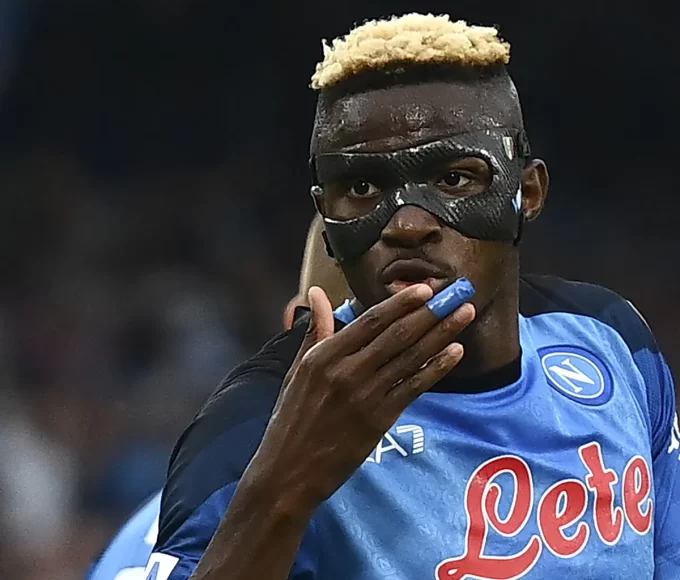


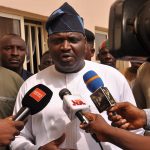
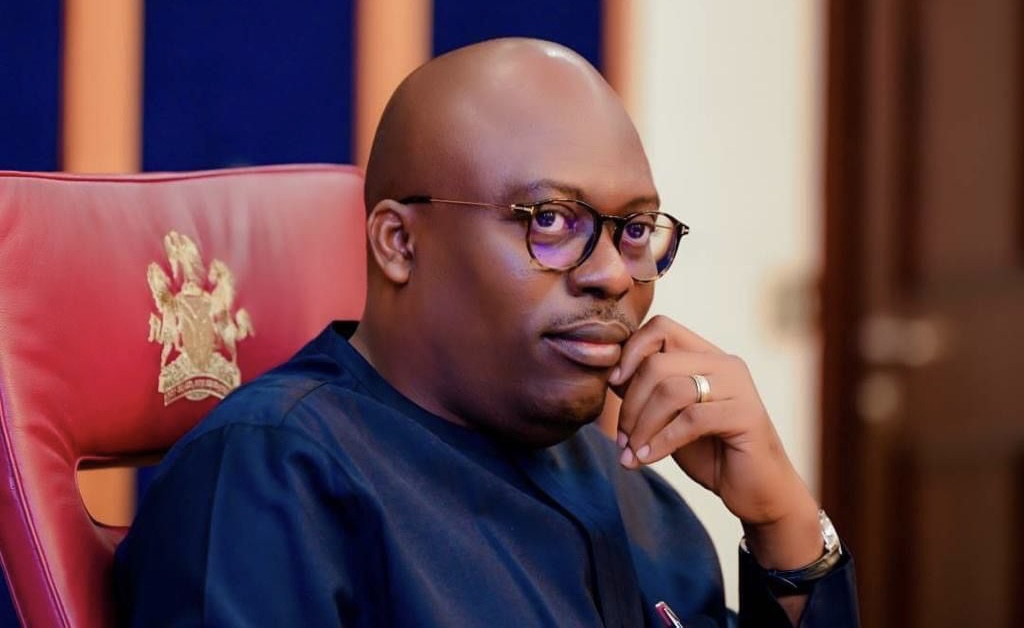
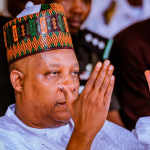




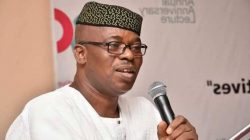

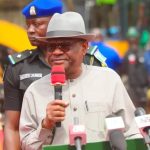

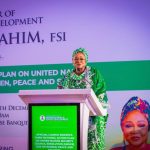
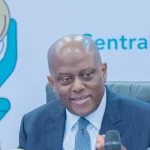




Leave a comment